If You Tend to Shy Away From Retinoids, This New Version Might Change Your Mind
Maya Thomas

Retinoids in any form can be tricky, especially if you have sensitive, reactive, or barrier-damaged skin. I had to learn the hard way that prescription-strength retinoids like tretinoin are not for me, and I'm still dealing with some of the skin damage it left behind. Recently, while getting a facial, I started chatting with my aesthetician about my skin struggles, and she mentioned that something called hydroxypinacolone retinoate (HPR) might be good for my particular skin type. Obviously, that sounded like a mouthful and wasn't a type of retinoid I'd heard of before.
I'm always excited to learn about newer ingredients, and my aesthetician told me a little bit more about it. First, I guess you couldn't say that this is a totally new ingredient on the market that popped up a month ago. HPR has been around for a few years at least, but my aesthetician explained that it is a new-generation retinoid that helps bypass the adjustment period common with other retinoids and is more easily tolerated by sensitive skin. If you tend to shy away from retinoids because you're sensitive or your skin is reactive, you'll definitely want to keep reading. I'm sharing more info on HPR straight from a derm along with her recommended favorites.
What Is HPR, and How Is It Different From Other Retinoids?

If you're not familiar with this lesser-known retinoid, let me first explain what it is and how it's different from other retinoids. I reached out to board-certified dermatologists Marisa Garshick, MD, FAAD, and James Kilgour, MD, to break it down for us. "Hydroxypinacolone retinoate (HPR) is a type of retinoid that is considered an ester of retinoic acid," she explains. "This means that it tends to be more potent than traditional retinol without being as irritating as a prescription retinoid."
This type of retinoid can be particularly helpful for those with sensitive skin or those who are new to using retinoids for this reason. Garshick adds, "It can be a great option for someone who is unable to tolerate a prescription retinoid. Since it doesn't require as many steps to be converted to retinoic acid, unlike traditional retinol, it may be more effective than retinol while still being less irritating than a prescription retinoid, which is what makes it a good option for those with sensitive skin."
How Does HPR Work?
"Like tretinoin, HPR is similar in that it binds directly to the retinoic acid receptor within the skin's keratinocytes, triggering these skin cells to act more youthfully and resulting in decreased fine lines and wrinkles, more uniform pigmentation, and decreased tendency toward breakouts," Kiglour adds. "While this sounds great, tretinoin has a large body of scientific research proving its benefit for the skin and anti-aging, and while HPR is promising, it may not necessarily be as beneficial." Kilgour recommends introducing a retinoid product to your skincare lineup gradually, using it just three times weekly before building to nightly use as tolerated. In short, it's the over-the-counter version of tretinoin and is believed to act more gently, leading to decreased irritation, which is the major adverse side effect of tretinoin.
What Skin Types Is HPR Best For?
When it comes to determining if you should use HPR, rest easy in the knowledge that its gentle enough for use on all skin types but works especially well with those who deal with reactive, sensitive skin on the daily. "HPR is a suitable alternative to tretinoin for people with sensitive skin, especially those who have struggled to tolerate tretinoin in the past," says Kilgour. Like its predecessor, HPR requires after-care, meaning you should continue applying sunscreen after use and pay special attention to how your skin responds.
I'm excited to try this type of retinoid since I used tretinoin for years only to realize that it was way too strong for my sensitive skin and did my moisture barrier no favors. I'm still dealing with the damage, but I'm ready to incorporate a gentler retinoid like hydroxypinacolone retinoate. For expert-approved recommendations and a few more options with HPR, keep scrolling.
The Best HPR Products
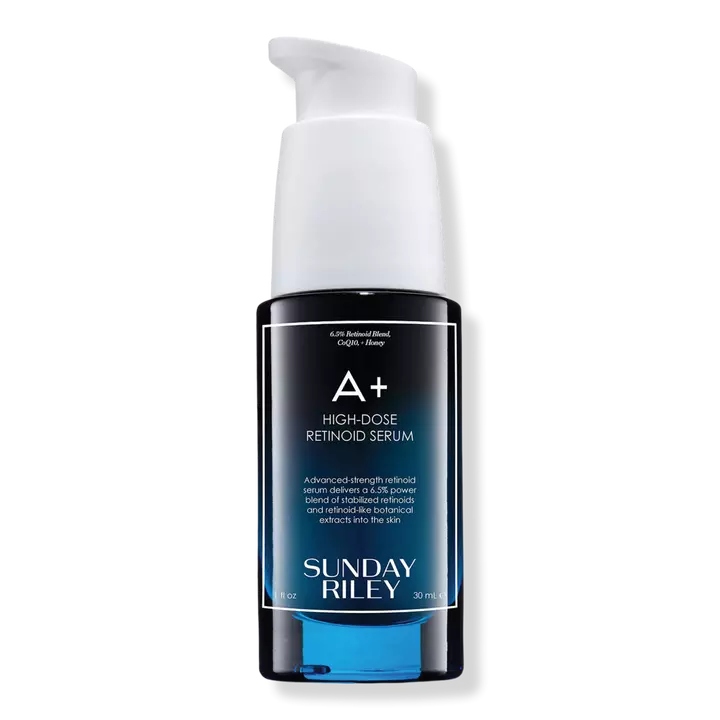
"This serum uses a retinoid complex containing HPR and a retinol to reduce the appearance of fine lines and wrinkles. It also contains CoQ10 to provide antioxidant benefits and Hawaiian white honey to hydrate the skin and minimize sensitivity." — Garshick
Customer Review: "I always struggled with textured skin, large pores and rough feeling skin, constantly having to exfoliate with harsh washes and peeling pads. But since I started using this product I not done any of those. My skin feels and looks so smooth!"
Pros: Calms the appearance of redness for a more even-toned complexion
Cons: Not ideal for those sensitive to fragrances
Specs: 1 oz and 1.7 oz pump dispenser
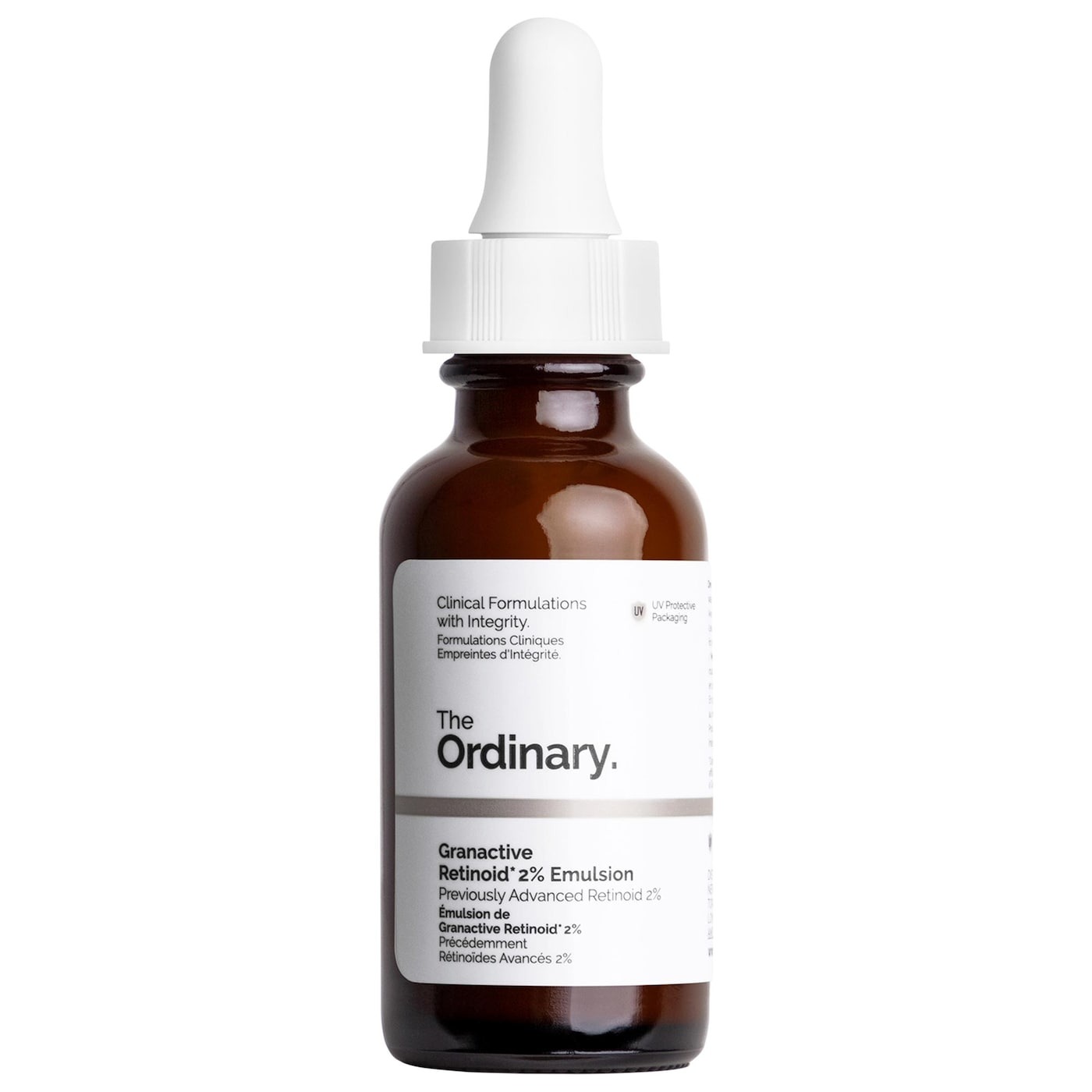
"It's affordable, and it contains bisabolol, which is one of my favorite skin-soothing, anti-inflammatory ingredients that will help with retinoid sensitivity issues." — Kilgour
"Containing HPR and retinol, this serum works to improve both skin texture and tone while also improving the look of fine lines and wrinkles. It can be used nightly after cleansing and prior to moisturizing." — Garshick
Customer Review: "This is the only retinoid I use. It spreads easily (a little goes a long way), absorbs quickly, does not irritate my sensitive skin and gives a radiant all day “glow”. I’ve gotten so many compliments!"
Pros: Addresses dullness, uneven texture, and fine lines
Cons: None
Specs: 1 oz with solution dropper
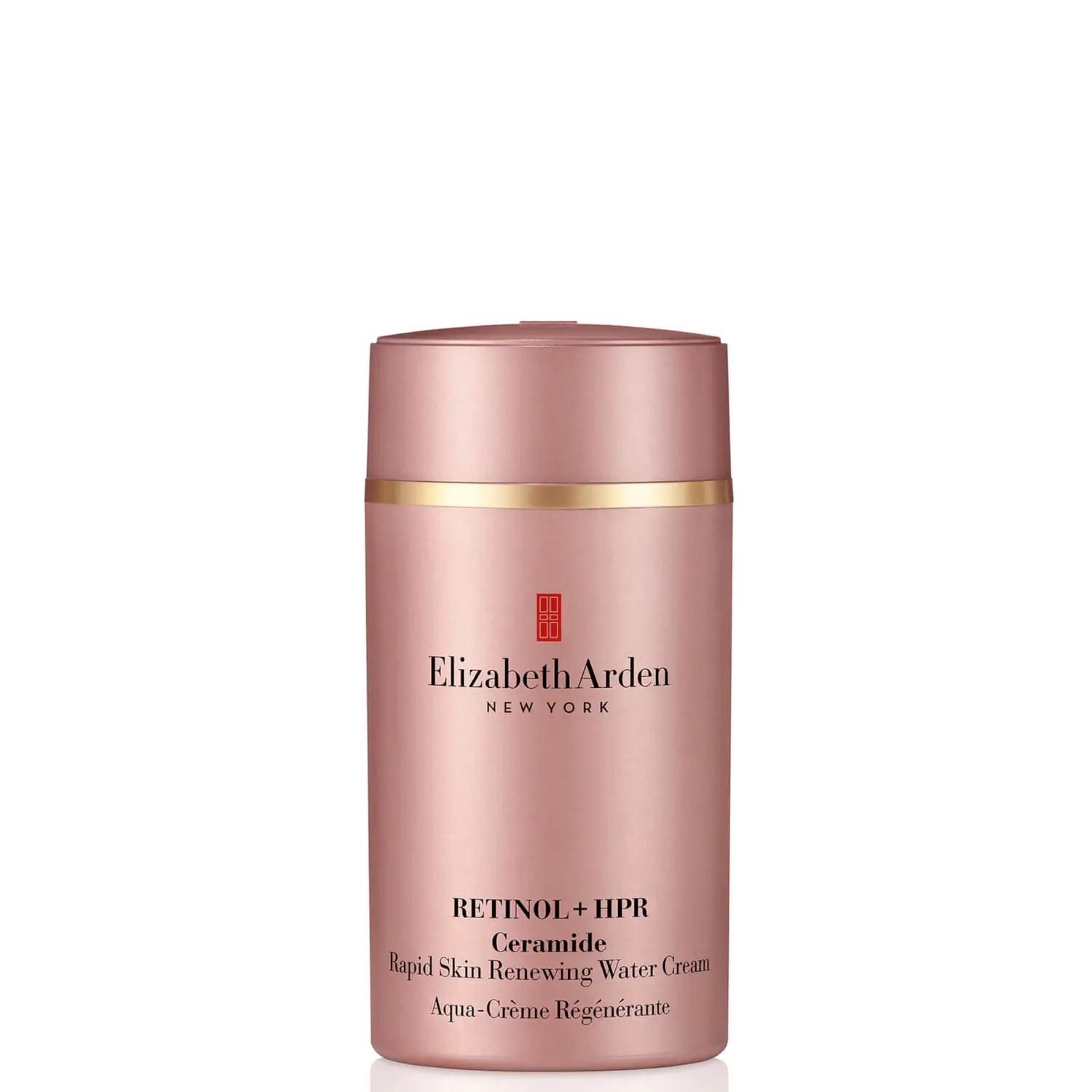
"This moisturizing cream combines peptides, retinol, and HPR to improve the appearance of fine lines and wrinkles by boosting collagen production. It also contains hyaluronic acid, bisabolol, and ceramides to help boost hydration, soothe the skin, and support the natural skin barrier." — Garshick
Customer Review: "I am thankful that I was able to test the Elizabeth Arden Retinol Ceramide. I was skeptical whether or not I would actually see results but I have noticed a reduction in aging and wrinkles. The formula is so silky and feels like butter. The scent is really nice and very subtle."
Pros: Utilizes botanical extracts to nourish the skin
Cons: Offered at a high price point
Specs: 1.7 oz pump dispenser
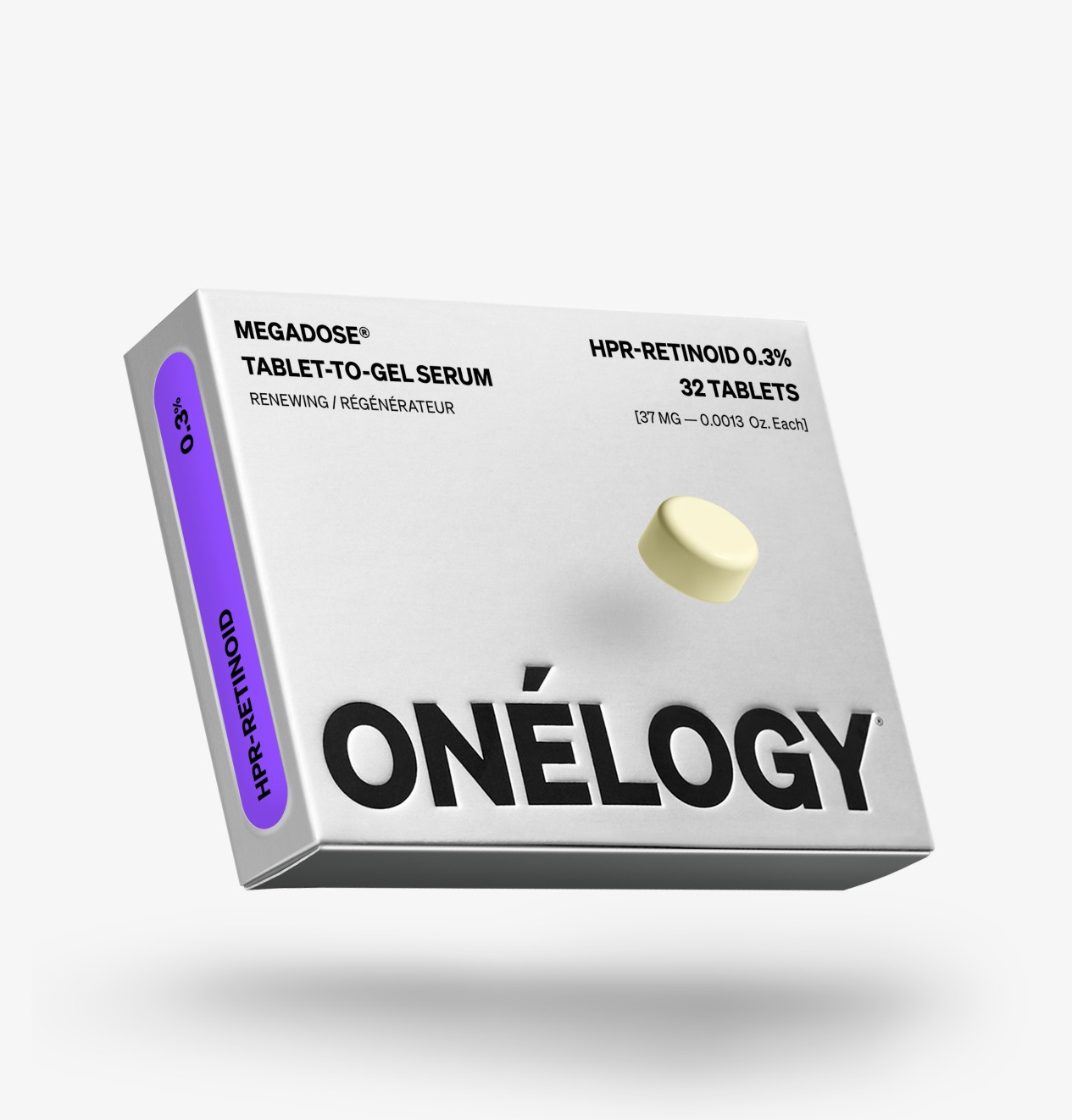
"Containing 0.3% pure HPR and soothing vitamin E, this retinoid serum helps to regulate skin cell turnover while boosting collagen production to improve fine lines and wrinkles. It comes in a tablet that gets dissolved with the addition of water." — Garshick
Customer Review: "I have never used a product like this before and I was curious, so I bought this and the peptides after reading reviews. Within the first two weeks I noticed such a difference in my face! My skin is smoother, brighter, and my makeup glides on so easily after using it."
Pros: Helps visibly improve signs of aging
Cons: Tablet is light and delicate—use with care
Specs: 32-count tablet-to-gel serum
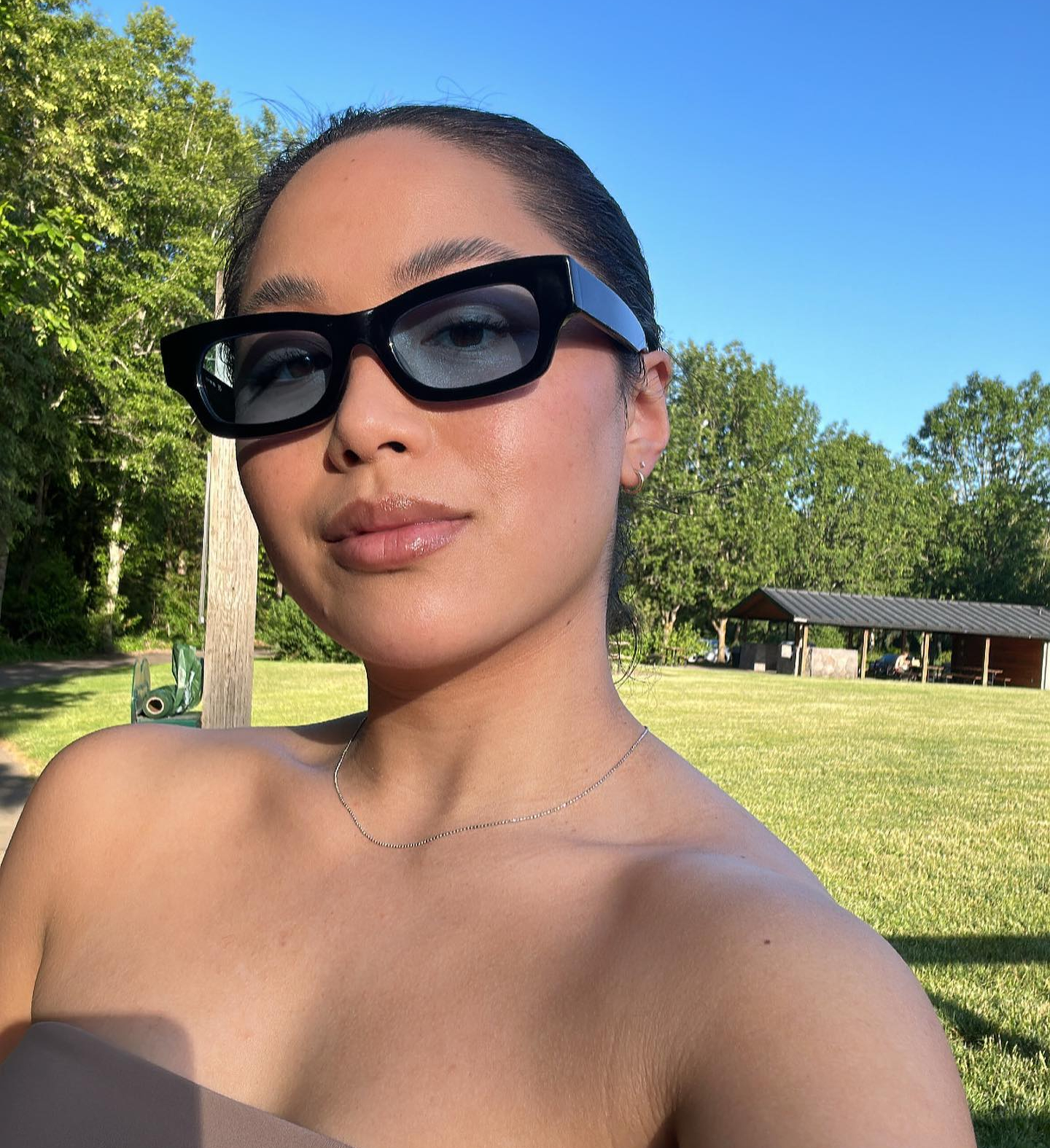
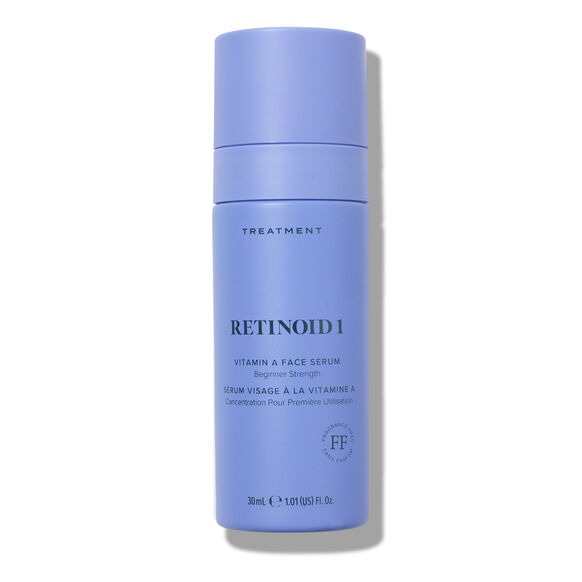
This retinoid serum with hydroxypinacolone retinoate comes as a recommendation from celebrity aesthetician Renée Rouleau. She equates it to an at-home chemical peel for the skin. This level-one serum from the brand is great for beginners.
Customer Review: "I experience irritation with the various retinol products I have tried in the past. This is a lovely gentle product, especially for those just starting or those of us with sensitive skin! I use it a few times a week, but it’s so gently I think it could probably be used more often."
Pros: Helps to introduce the skin to retinoid use
Cons: Effects are not immediately noticeable
Specs: 1.01 oz pump dispenser
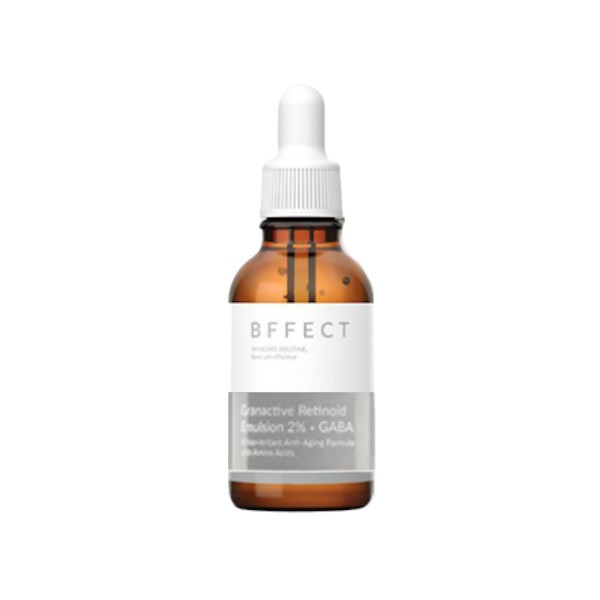
In addition to HPR, this serum contains GABA, an amino acid that helps further reduce fine lines, improves skin elasticity, and repairs damaged skin.
Customer Review: "This is my first time using retinoid products, I was very scare at first. I was afraid I’ll breakout or something. I use this with other products, and they work great together. My face looks a lot better."
Pros: Helps skin renewal, reduces surface roughness and age spots
Cons: Not ideal for those sensitive to fragrances
Specs: 1.01 oz with solution dropper
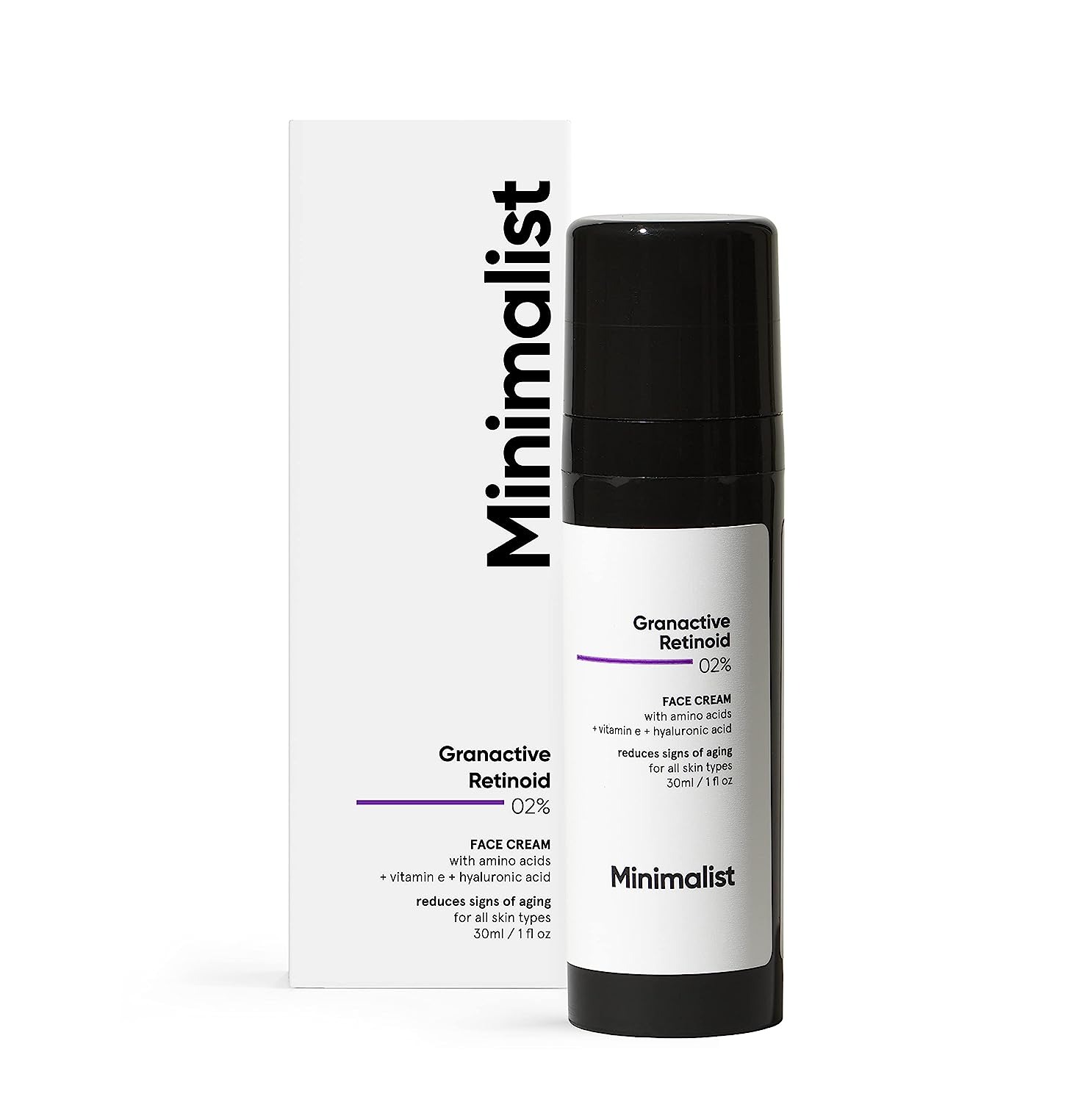
Minimalist's retinoid complex is great for those with dry, dehydrated, or sensitive skin since it also contains 17 amino acids, hyaluronic acid, and vitamin E to help soothe redness and irritation.
Customer Review: "I started seeing improvements in just a week or two. I didn't believe the other reviews totally when i bought this but it does work. My skin looks clearer and has a glow to it that it usually doesn't because I have naturally dry skin."
Pros: Targets fine lines, dullness, age spots, and hyperpigmentation
Cons: None
Specs: 1 oz pump dispenser
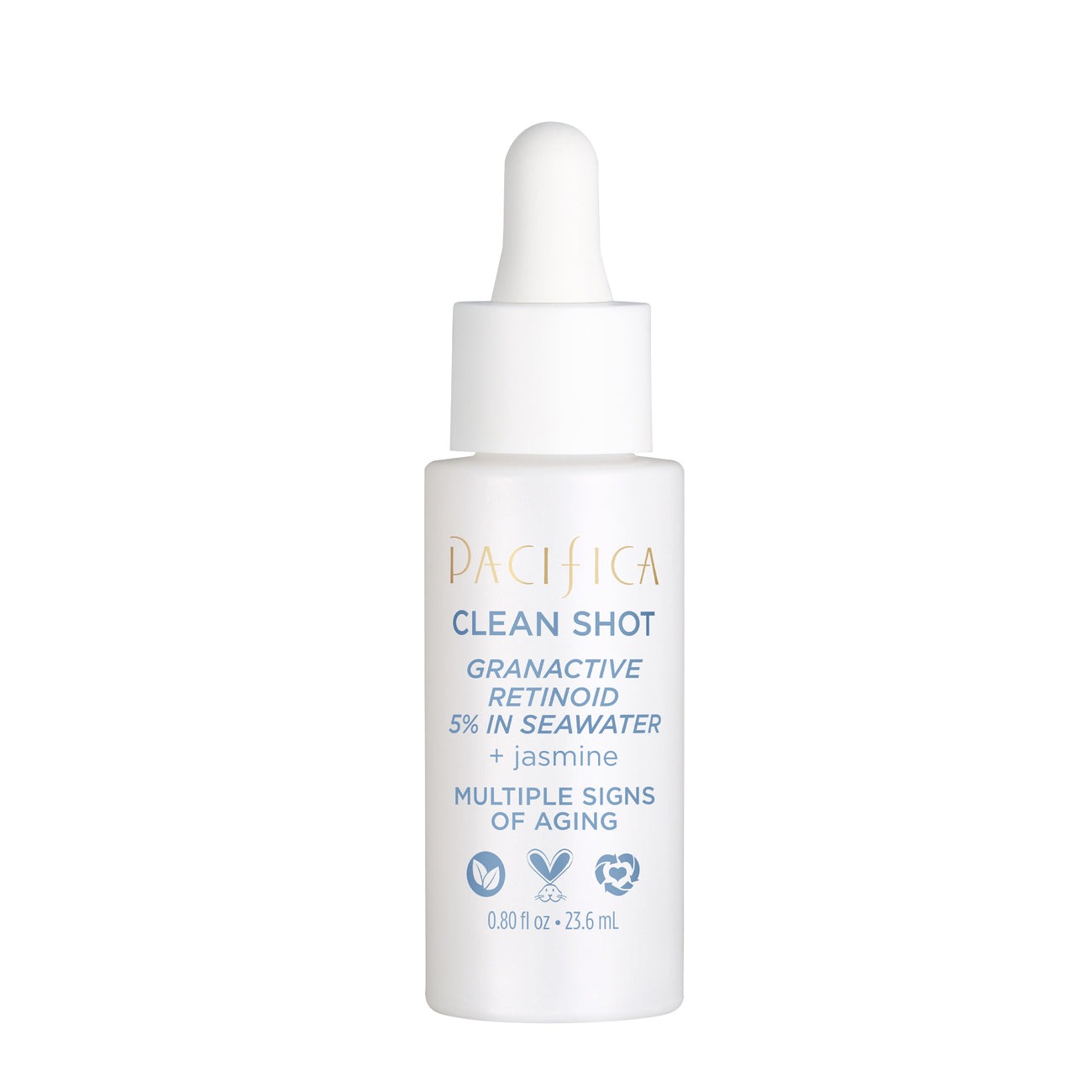
Featuring a Granactive Retinoid complex along with mineral-rich sea water, this serum helps reduce fine lines while evening out your skin tone.
Customer Review: "This is such a good retinoid for the price. I love that it's 5% granactive retinoid (0.5% hydroxypinacolone retinoate). Doesn't irritate my skin. My entire skin texture has improved, including pores and fine lines. Also has really helped with my acne."
Pros: Designed to address multiple signs of aging and texture
Cons: Very little serum provided in the bottle
Specs: 0.80 oz with solution dropper
More Sensitive Skin–Friendly Retinoids
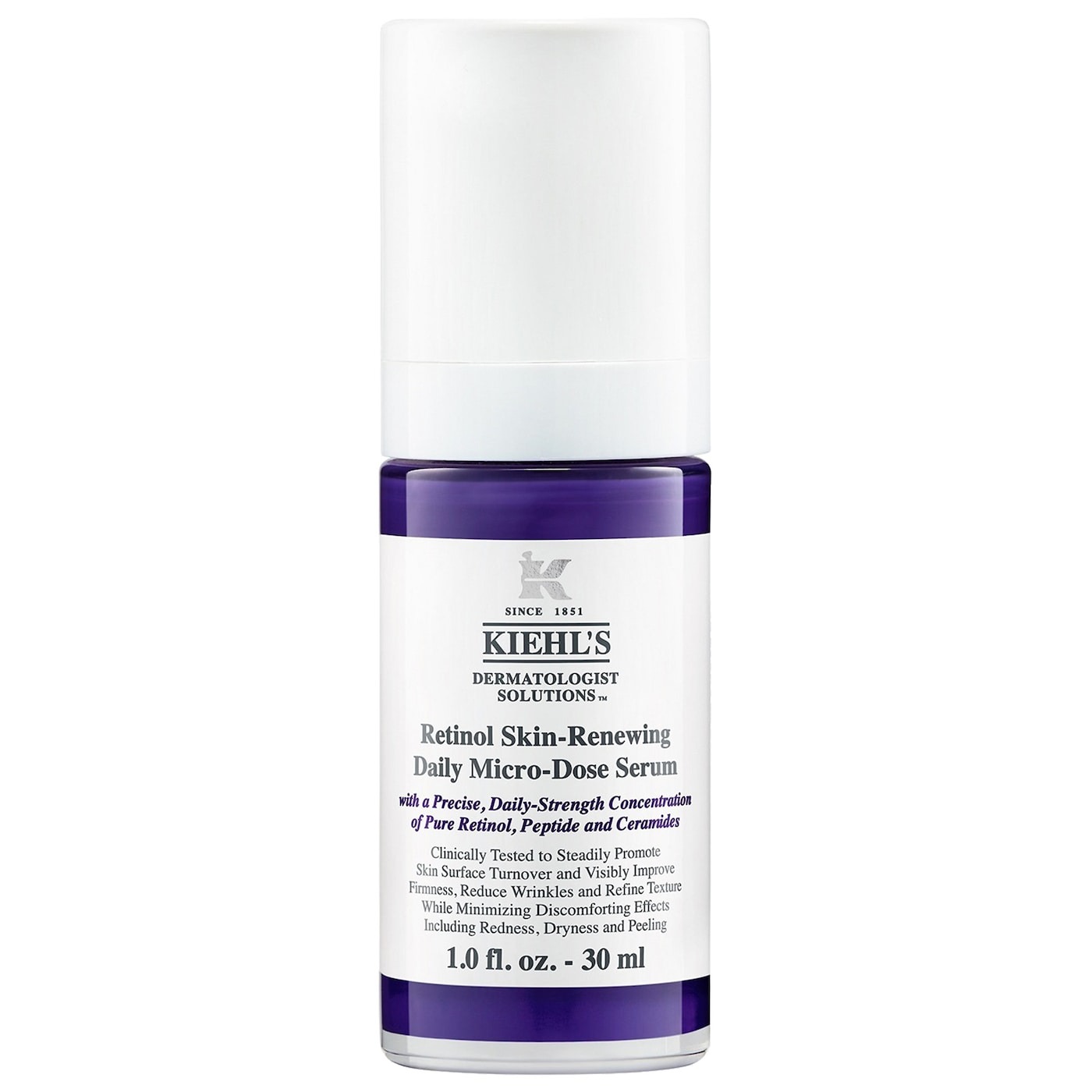
Kiehl's offers a great gentle retinol serum for those who may be dealing with a bit of moisture-barrier damage. It's not usually recommended to use stronger retinoids while your barrier is healing, but if you're like me and have spent months healing your skin barrier, it isn't always realistic to completely stop using your actives for months or years at a time. This retinol serum contains peptides and barrier-protecting ceramides to help heal skin and increase its tolerance to retinol.
Customer Review: "I have used this product for 5 months and am loving it. It has done wonders for my skin texture and acne. My skin is quite sensitive, so at the beginning, I used it every other night. I also used moisturizer both underneath and on top to help my skin adapt. Remember to be patient and consistent with retinol! Also, do not forget to use a quality moisturizer and sunscreen. "
Pros: Crafted with pure retinol, peptides, and ceramides
Cons: Formula is quite thick and heavy
Specs: 1 oz pump dispenser
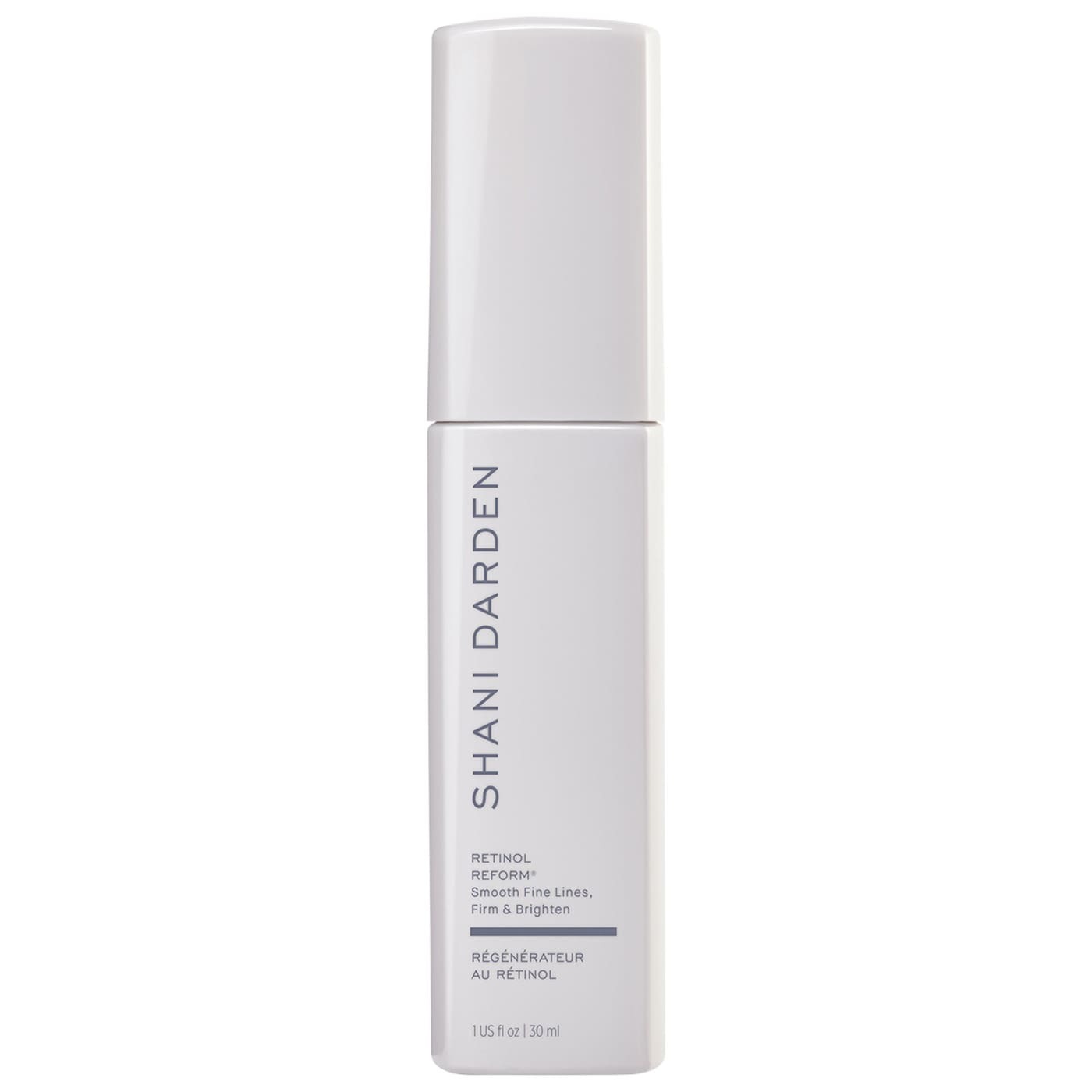
Celebrity esthetician Shani Darden's Retinol Reform is a fan-favorite serum because it's well tolerated by most skin types yet is still super effective on fine lines and acne.
Customer Review: "I absolutely love this product! It is so nice and has made my skin feel absolutely amazing. I have truly noticed a different in both the feel and appearance. This is definitely a must have in a luxury skincare routine."
Pros: Firms and brightens for glowing, younger-looking skin
Cons: Offered at a high price point
Specs: 1 oz pump dispenser
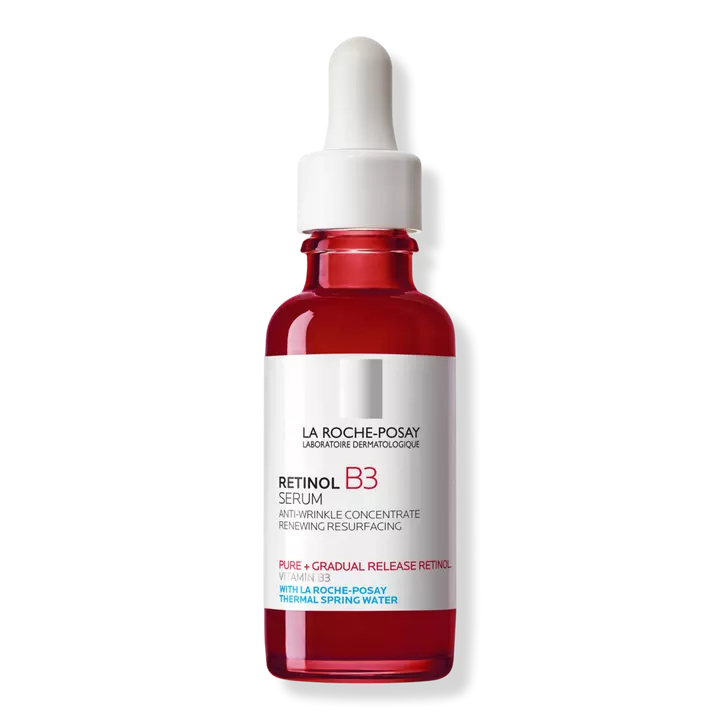
This noncomedogenic, lightweight serum is hydrating but won't leave you feeling greasy. It features gradual-release retinol to help mitigate any irritation, making it a great option for sensitive skin types.
Customer Review: "I really could not believe the visible difference in just a few days. I was amazed. I receive consistent compliments on my skin after using the product for about three weeks. It will now be a staple in my skin care routine!"
Pros: Soothes the skin with vitamin B3
Cons: Not ideal for those sensitive to fragrances
Specs: 1.0 oz with solution dropper
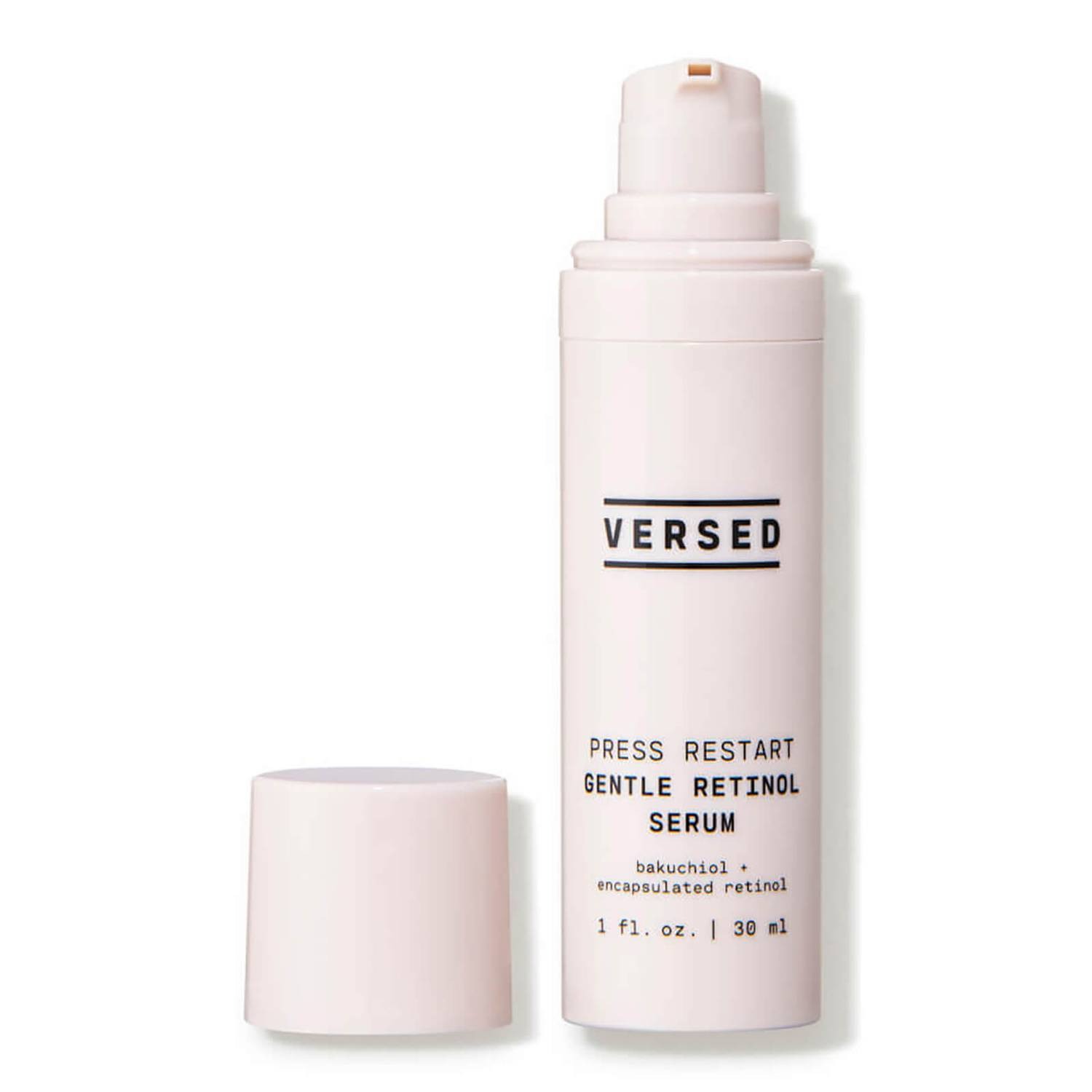
This creamy Versed retinol serum is formulated specifically for retinol beginners and those with sensitive skin. Bakuchiol in the formula also helps boost retinol's efficacy and is sensitive skin–friendly.
Customer Review: "I have sensitive, acne-prone skin and have always had a hard time using retinol. This has been the first I've ever used where my skin didn't super dry, itchy and red. Sold!"
Pros: Supports healthy skin function and keeps pores clear
Cons: None
Specs: 1.0 oz pump dispenser
Shawna Hudson is a beauty, wellness, lifestyle, and travel writer with over 10 years of experience. She graduated from California State University, Fullerton, with a degree in journalism and has written for other publications such as Bustle, The Zoe Report, Byrdie, Elite Daily, and more. She is currently a beauty writer at Who What Wear and hopes to continue feeding her (completely out-of-control) beauty obsession as long as she can. Stay up to date on her latest finds on Instagram @shawnasimonee.
- Maya ThomasAssociate Beauty Editor